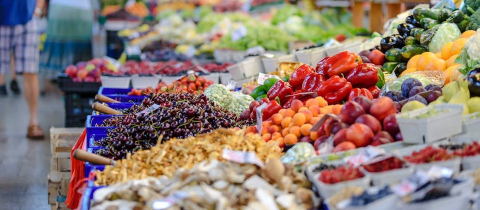We all have habits. One of mine is to start every day with a glass of orange juice. Freshly squeezed would be ideal, but frankly, too much of a bother. So I go for the one that says “100% pure and natural, nothing added, nothing taken away, just oranges.” My preference has nothing to do with the “pure” or “natural,” it has to do with taste. But I certainly took note when I came across a report that a class action lawsuit had been launched in the U.S. against my favorite juice, Tropicana. What horrific toxin had been uncovered, I wondered? Actually, none.
The lawsuit asserts that the label claim “100% pure and natural” is false because the juice is in fact heavily processed and its flavour is scientifically manipulated. That being the case, the plaintiffs allege that they would not have purchased the juice, or paid more than they otherwise would have been willing to pay, had the juice been properly labeled. While this lawsuit has a frivolous flavour, it does bring the discussion of the term “natural” into the public arena. That’s a good thing, because this expression is widely bandied about in a meaningless fashion in order to cater to the common fallacy that “natural” is always superior to “processed,” “artificial” or “synthetic.”
There is no question that the image projected by Tropicana is that oranges are squeezed, their juice poured into a carton which is then speedily delivered to a store near you. But that is not what happens. The truth is that if you want fresh, great-tasting orange juice, there is only one way to get it. Squeeze the oranges yourself and drink the juice as quickly as possible. Why quickly? Because the squeezing process unleashes a cavalcade of chemical reactions, most of which are not favourable. Enzymes released from the ruptured cells catalyze reactions between oxygen in the air and some of the hundreds of compounds that occur naturally in orange juice. The oxidized products result in off-flavours. If orange juice from a carton is to be fresh-tasting, these reactions have to be curtailed, which is why Tropicana has been working since the 1950s on various technologies to maintain as much of the original flavour as possible. And on ways to ensure that the juice contains no harmful bacteria.
Like virtually all foods, oranges can harbour bacteria. Pasteurization, basically heating the juice, kills bacteria, but it also kills taste. So, unpasteurized juice may appeal to the taste buds but sadly there have been well documented cases of poisoning from such juice, with perhaps the most famous one being in an Orlando theme park where more than sixty people came down with salmonellosis. How then do you get rid of bacteria and preserve the taste? Back in 1952, Anthony Rossi, who founded the company that would eventually become Tropicana, introduced a flash pasteurization process that managed to preserve the flavour by raising the temperature of the juice for only a very short time.
Pasteurization is critical since oranges are seasonal and juice sometimes has to be stored as long as a year to satisfy consumers who like to start off each day with this beverage. And why shouldn’t they? It is a great source of potassium and provides a large array of antioxidants. But of course there’s also a large dose of sugar, comparable to soft drinks, so we don’t want to be guzzling O.J. by the liter.
Orange juice from frozen concentrate was already available in the 1950s, but its taste was far removed from that of fresh oranges because the heat treatment needed to concentrate the juice resulted in the breakdown of flavour compounds as well as in the formation of novel compounds with undesirable characteristics. Development of Rossi’s flash pasteurization was followed by the introduction of “deaeration,” a process by which a vacuum system removes much of the air from the freshly-squeezed juice to prevent oxidation reactions. Unfortunately this also removes some of the natural orange flavours. But there was a scientific solution to this as well. The aromas were collected, blended with orange oil extracted from the peel, and then added back to the juice.
The volatiles and orange oil make for a very complex mix of hundreds of compounds that can be separated from each other by techniques such as distillation and chromatography. A chemist can then assemble these into “flavour packs” with varying tastes. One of the major compounds responsible for fresh orange taste is ethyl butyrate, so that flavor packs that contain higher levels of this chemical are especially desirable. Since oranges differ in taste depending on their variety, and the time of the year when they are picked, the use of flavor packs allows for uniformity of taste year round. Basically then, flash pasteurization, deaeration and the blending of orange compounds into flavour packs allows for a juice that tastes as close as possible to freshly-squeezed. But it isn’t exactly “100% pure and natural,” although that to some extent depends on the interpretation of these ambiguous terms.
Since all components of the juice do come from oranges, the juice can be called “natural.” In common usage, however, “natural” has come to imply unprocessed, so in that way Tropicana is not natural. That, though, has nothing to do with the quality of the juice, which is excellent, as is evidenced by its popularity around the world. The real problem is the golden aura with which the term “natural” has been anointed. If oranges picked in Florida were just squeezed and the juice packaged and shipped up north, you would be drinking truly “natural” orange juice, but chances are high that you would not enjoy the natural bacteria and natural oxidation products.
Technically, the plaintiffs in the lawsuit against Tropicana are correct, and perhaps the labeling should be changed. Indeed, why not emphasize the scientific ingenuity in overcoming the natural degradation of orange juice? Here’s my suggestion. “The best tasting orange juice that nature and modern science can deliver.” Because it really is.







